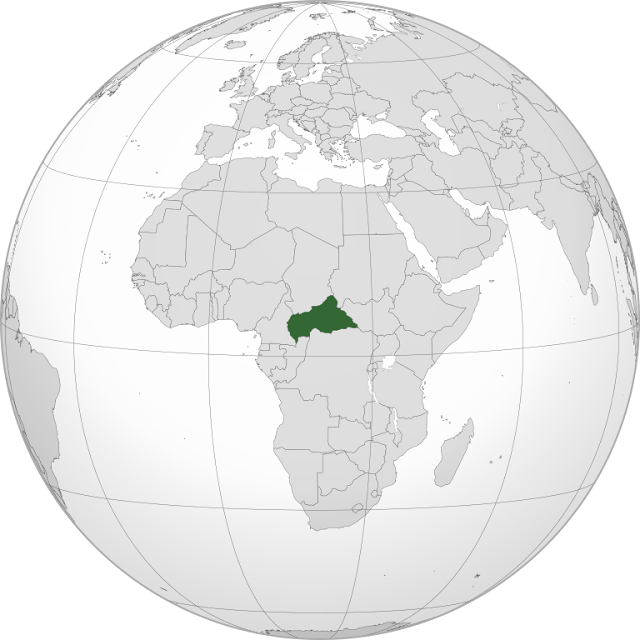Constitution of Central African Republic
The Central African Republic is a country in Africa. The name of the
continent is embedded in the name of the state. The official languages
are French and Sango. About 90% are Christians, but there are a lot of
ethnic groups around. With a area of 6,22,984 sq km, the state has a
population of 46,66,000 average.
Equal rights of men and women
are recognized in all cases. Children born in of wedlock or out of
wedlock have equal status. Parents are obliged to ensure the education
of their child till the age of 16 years. The right of the people to
protest peacefully is recognized in any undemocratic or military coup.
However, the effectiveness of peaceful protests against armed members of
the military is a matter to think.
These are positive aspects.
Now let's discuss the negative aspects. The President has the power to
issue ordinances, which is conflictable with democratic ideology.

Admirable Articles of Central African Republic's Constitution
Article 1 (Part of it)
The human person is sacred and inviolable. All agents of public authority, [and] any organization, have the absolute obligation to respect it and to protect it.
Article 3 (Part of it)
No one may be subjected either to torture, or to rape [viol], or to cruel, inhuman, degrading or humiliating acts or treatment.
Article 6 (Part of it)
All human beings are equal before the law without distinction of race, of ethnic origin, of region, of sex, of religion, of political affiliation and of social position.
The State assures the reinforced protection of the rights of the minorities, of the autochthonous peoples, and of handicapped persons.
The law guarantees to the man and to the woman equal rights in all the domains.
Article 7 (Part of it)
Parents have the natural right and the primordial duty to raise and educate their children so as to develop in them [a] good physical, intellectual and moral aptitude. They are supported in this task by the State and the other public collectivities.
Children born outside of marriage have the same rights to public assistance as legitimate children.
Natural children, legally recognized, have the same rights as legitimate children.
Article 9 (Part of it)
Each has the right of access to sources of knowledge.
Parents have the obligation to provide education and instruction to their children until the age of sixteen (16) years at least.
Article 28
The usurpation of sovereignty by coup d'état, rebellion, mutiny or any other non-democratic process [procédé] constitutes an imprescriptible crime against the Central African People. Any person or any third estate [Etat tiers] performing such acts will have declared war on the Central African People.
Any physical or juridical person that organizes actions of support, diffuses or have diffuse declarations to support a coup d'état, a rebellion or an attempted to take the power by mutiny or by any other means, is considered as co-author.
The authors, co-authors and accomplices of the acts referred to in paragraphs 1 and 2 are interdicted from all public functions in the Institutions of the State.
Article 29
In the case of a coup d'état, of aggression by a third State or by mercenaries, the authorities enabled by the Constitution have the right and the duty of recourse to all means to reestablish constitutional legitimacy, including the recourse to the Agreements of military cooperation or defense [cooperation] in force.
In these circumstances, every citizen or group of citizens has the right and the duty to organize themselves in a peaceful manner, to defeat [faire échec] the illegitimate authority.
Facts of Central African Republic's Constitution
Article 42
As an exception, for a limited time period and for the execution of a specific program, the President of Republic can demand of the Parliament the authorization to take, by ordinances, the measures which are normally of the domain of the law. The ordinances are adopted in the Council of Ministers after [the] opinion of the Council of State.
They enter into force on their publication but become lapsed if they have not been ratified at the expiration of the time period specified in the enabling law.
At the expiration of this time period, the ordinances, when they have
been ratified, may only be modified by the law in those matters which
are of the legislative domain.

